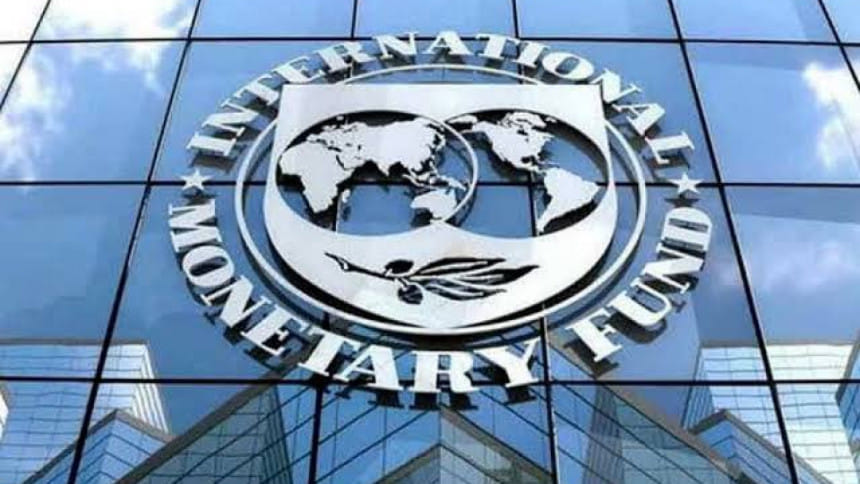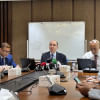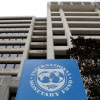Bangladesh not in crisis: IMF

Talks for the support package from the International Monetary Fund are likely to begin after the third week of October, said the Washington-based multilateral lender yesterday.
Given that Bangladesh is not in a crisis mode, there is not a fixed timeline or deadline set, said an IMF spokesperson.
The first staff mission is expected to take place after the 2022 annual meetings of the IMF and the World Bank Group, which will take place in person from October 10 to October 16 in Washington DC.
Once the staff level agreement is reached, which usually takes a few months, will the programme be sent for approval to the executive board. The disbursements are made once the executive board approves the programme.
"We have not started any negotiations with the authorities on the design of the programme," the IMF spokesperson said.
So the government's recent move of a record fuel price hike to bring parity with the global price has no relation to the IMF support programme sought.
"That is a decision of the government and there is no connection between the action of the authorities and their request for an IMF programme."
The authorities have not specified an amount in the request letter, the IMF said, adding that the size and the modality of the support will be discussed as part of the programme negotiations.
"Normally, the amount of support depends on the financing needs of the government and the strength of the reform agenda we will be putting together."
The IMF's standard practice is to work closely with the authorities to come up with a programme that is most relevant to that country's economic and social dynamics.
"It is the authority's programme and our efforts will be focused on collaborating with them to design a programme which will support them in addressing their long-term structural issues."
The country has a growing need to mobilise finance for both adaptation and mitigation of climate change.
"Bangladesh is in many ways at the forefront of preparing for climate change. It has been very vocal on several international platforms highlighting the urgent need to develop global policy solutions to respond to climate change. It is one of the few countries in the world to have operationalised the climate fiscal framework, which provides the principles and tools for climate fiscal policymaking."
While the authorities have started allocating budgetary support for adaptation and have updated their nationally determined contributions, its allocation of about 1 percent of GDP per year remains well below the required 3-4 percent of GDP.
Bangladesh is pre-emptively seeking IMF support to meet its climate financing needs through the newly created Resilience and Sustainability Trust (RST) as well as to cushion the impact of war in Ukraine, bolster its external position and be prepared to deal with any further deterioration in external conditions.
Loans from RST come with a 20-year maturity and a ten-and-a-half years' grace period. The IMF has come up with a three-tier interest rate structure as per the country's income status.
Bangladesh can get up to $1.5 billion from the RST, which targets specific areas within the mandate of the IMF and not all areas of climate change.
But an IMF programme now will help Bangladesh tide over the current macroeconomic volatility and will further the authorities' hold to build an inclusive, resilient and green economy, the IMF spokesperson said, adding that the efforts will also help Bangladesh prepare for successful graduation from the least-developed country bracket in 2026.
"Bangladesh is not in a crisis. It is in a vastly different situation from some of the neighbouring countries. Even though the reserves have come down, they are still high enough to cover 4-5 months of prospective imports. The widening current account deficit has put pressure on the currency and the taka has depreciated. The external debt is relatively low and mostly concessional in nature."
Besides, the most recent Article IV consultation has assessed that Bangladesh's debt outlook is expected to remain sustainable; the country has a low risk of debt distress: the public sector debt to GDP ratio stands around 6 percent, with the external debt to GDP ratio being 14 percent.
During Article IV consultation, an IMF team of economists visits a country to assess economic and financial developments and discuss the country's economic and financial policies with government and central bank officials. The IMF's most recent Article IV mission came in December last year and handed in the report in March this year.
However, tighter financing conditions and the recent currency depreciation will add pressure and reduce fiscal space, the IMF spokesperson said.
The government's request for a fund programme will ease the financing constraints and allow for advancing the efforts to manage fiscal, monetary and financial stability risks in light of climate change and recent global developments.
"Bangladesh did well to come out of the pandemic. The recovery was robust and was faster than in many other countries. However, it was dampened by the war in Ukraine."
The global conditions are very uncertain and Bangladesh is an import-dependent economy. Even though the commodity prices have started to come down, they are expected to remain elevated and volatile, which will have an impact on imports.
Given the uncertainty surrounding global developments, the pressure on the balance of payment is likely to continue.
"That's why this is an opportune moment that the Bangladesh government has preemptively asked for the IMF's support."

 For all latest news, follow The Daily Star's Google News channel.
For all latest news, follow The Daily Star's Google News channel. 








Comments